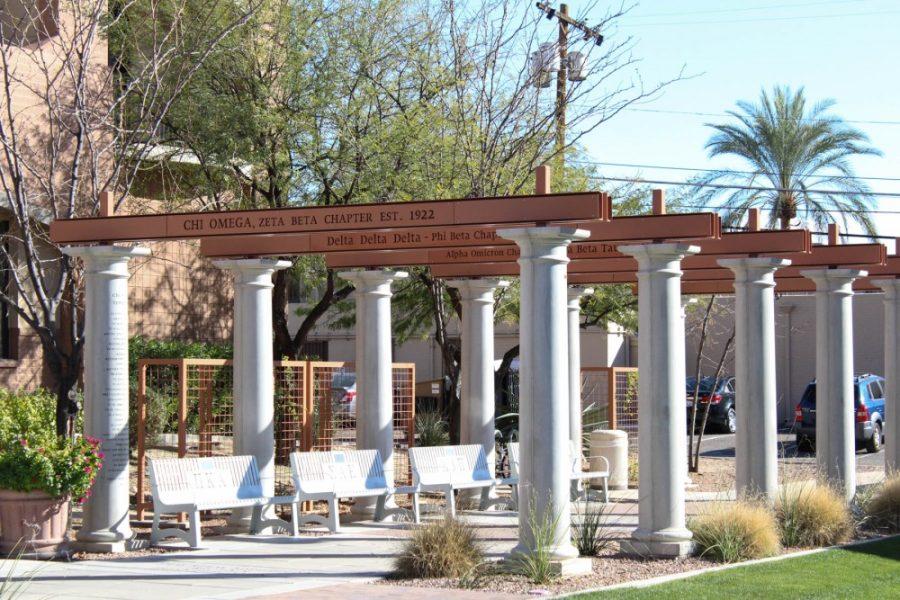The United Sorority and Fraternity Council is a form of Greek Life on campus based on identity and culture.
USFC, like other Greek councils on campus, caters to students who want to join an organization with others who share their ideals and values.
The USFC on campus has six fraternities and eleven sororities with cultures and identities ranging from African American to LGBTQ.
Natasha Zake is a sophomore and member of the historically black sorority Zeta Phi Beta Sorority Inc. Before arriving, she had no idea the University of Arizona even offered a cultural-driven sorority.
“Being a part of something that was catered for the people who are underrepresented made me feel more comfortable at my school,” Zake said.
RELATED: Loft panel examines mental illness on screen and in life
Zeta Phi Beta Sorority Inc., is also a participant in African American Student Affairs on campus and attends and hosts events intended to reach out to students who are looking for a “home” on campus or other people who have things in common.
Marcus Holt, member of Latino Fraternity Sigma Lambda Beta, describes the dichotomy between the Panhellenic Council and Interfraternity Council as a difference of cultures, especially because USFC is based off specific identities and cultures.
“Me and my peers struggle with expressing what we are about, but it is something we navigate,” Holt said.
One thing Holt holds close to his heart is that his fraternity is not just Latino; it is multicultural.
“My brotherhood is not just Latino based but focuses on multicultural membership, which is important to me since I am mixed — mostly Native and African American,” Holt said.
Being a large, Latino-based fraternity on campus, Sigma Lambda Beta takes those struggles and focuses on being trailblazers in the multicultural Greek Life and tries to bridge the gaps in culture between all of Greek Life.
“The more I learned about my brotherhood, the more I started to realize how it debunked a lot of preconceived notions I had about what Greek Life was,” Holt said.
Other than catering to the needs of underrepresented students on campus, the sororities and fraternities strive to help and spread awareness of who they are throughout the Tucson community.
RELATED: UA laboratory educates students, community on tree-based science
Isabel Uribe is a member of Lambda Theta Alpha Latin Sorority Inc. and said her sorority is her “home away from home.”
“Being surrounded by ladies with my similar values and similar backgrounds was extremely refreshing,” Uribe said.
One of those values is contributing to their National Philanthropy, St. Jude’s Children’s Research Hospital. Members of Uribe’s sorority try to get out and be of service to those around them as much as they can by putting their name out in the community.
One thing all of these organizations have in common is the appeal to the given cultural community; however, this does not mean they are exclusive.
“We pride ourselves in being ‘Latin by tradition, not by definition,’’’ Uribe said.
Greek Life communities do tabling events on the UA Mall and in the Student Union Memorial Center to reach out to the student population and have presentations, or “probates,” to reveal their newest members.
USFC also holds an annual “Triple S Show,” where these organizations can compete against each other in a stepping competition to win a trophy.
Organizations do street clean ups, study tables, educational workshops on campus and more.
They encourage and embrace diversity and hope to not only continue being a service to the community, but to grow in numbers so the community on campus can be more aware of who they are and what they stand for.
Follow Daily Wildcat on Twitter









